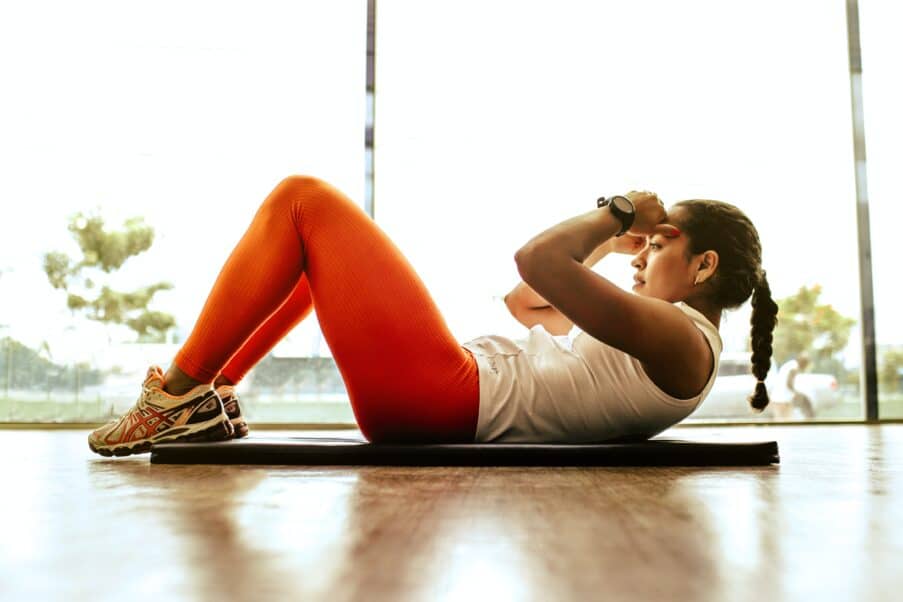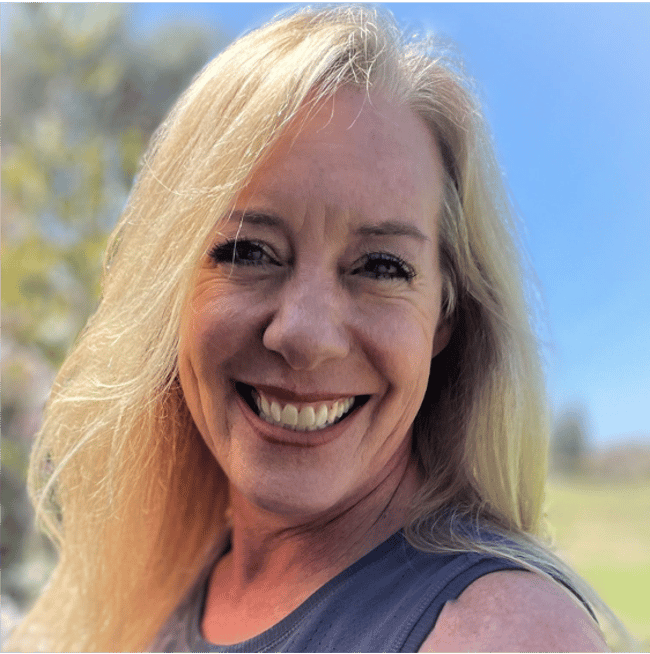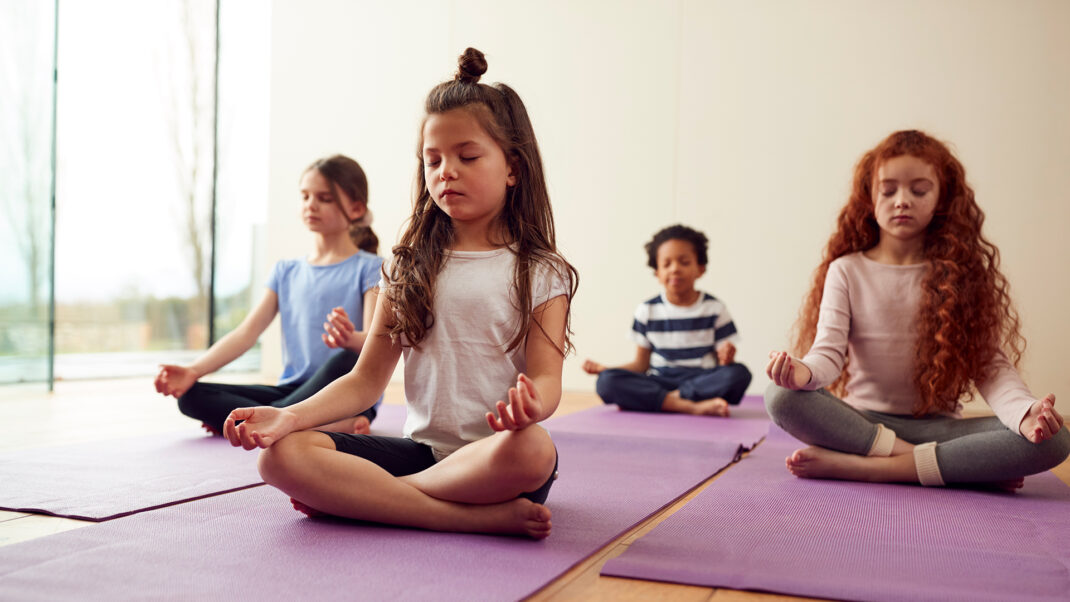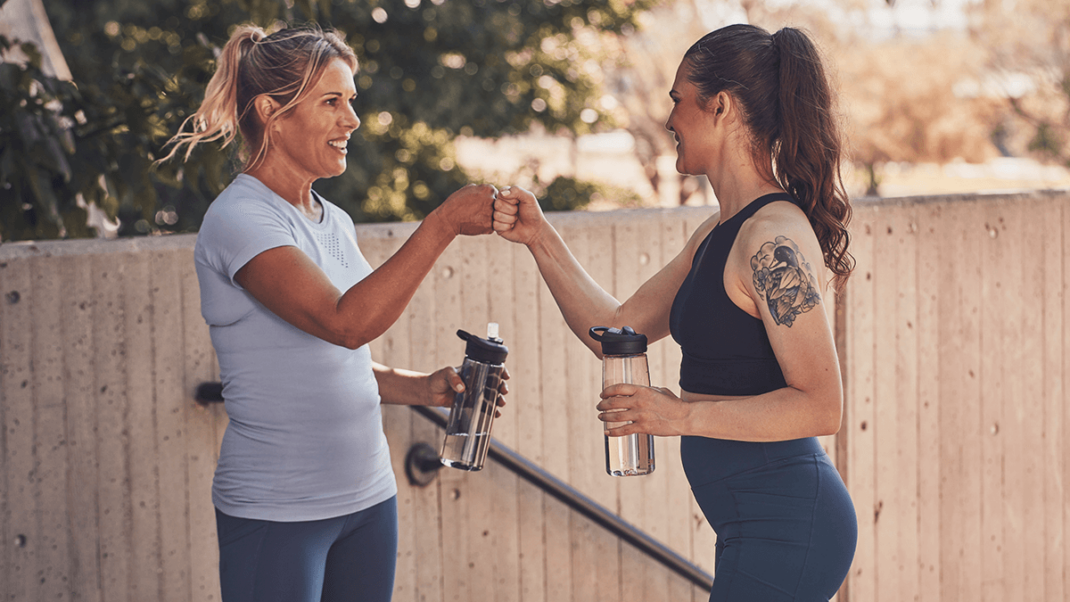The Best Education for Success in the Fitness Industry
Answers to students' most frequently asked questions about why they should take an academic path in a health and fitness discipline.

You have decided on a career in fitness because you enjoy working out and helping people. Are those two qualities all you need to get started in the industry? No—while they are great traits to possess, success in the fitness profession requires education: certifications, workshops, conferences and college degree programs focusing on kinesiology, the study of human movement.
A college degree in kinesiology can be crucial to a career in the fitness industry. A degree program might be called movement science, exercise science, physical education or even recreation; finding the one that best matches your skills and interests requires some research. Let’s look at typical questions from people interested in the fitness profession:
Students occasionally ask me, “Can’t I just get certified to work in the fitness industry?” Yes, you can. But that substantially limits your options. “A college degree is more than just a diploma,” says Fabio Comana, exercise physiologist with the exercise and nutritional sciences faculty at San Diego State University. “It indicates time management, organizational skills, etc. that are critical to professional success.” A degree provides a well-rounded educational foundation that applies to all professional endeavors, extending beyond what’s available in certification-prep courses. “Ultimately it makes you more employable,” Comana says. “Furthermore, many [fitness facilities] seek a bachelor of science degree, plus credential” before they will hire you.
Working on a kinesiology degree offers benefits beyond learning the theoretical and practical knowledge required in a fitness career. It also develops a network of essential relationships with other students, faculty and the community that will strengthen your professional prospects once you have graduated. For example, as a professor, I receive many e-mails from previous students who manage or own facilities and are looking for good-quality employees. They seek out our current students because they know the quality of their own education. After all, they have been through the curriculum themselves.
A 2-year program can lead to a certificate or an associate’s degree, while a 4-year program will ultimately provide a bachelor’s degree. Choosing one depends upon your future goals and your current situation:
- Are you just entering the profession with no experience in the industry?
- Are you contemplating a career change?
- Do you want to work with a specific population that may require additional education?
Ken Baldwin, PhD, assistant professor in the sport and wellness department at State University of New York at Plattsburgh, summarizes the pluses and minuses: “There are some good 2-year programs that can prepare you for a career as a fitness professional, but they may not prepare a student to transfer into a 4-year degree program because they have a lot exercise science and fitness courses, but not enough liberal arts courses to allow for a smooth transfer to a 4-year program. However, for someone who already has a 4-year degree, I think going back to school to enroll in a college certificate or 2-year associate degree that focuses on someone becoming a fitness professional is a great option.”
If you already have a bachelor’s degree you may want to consider entering directly into a master’s degree in kinesiology, even if your degree is in another area. Every year, I counsel individuals with a bachelor’s degree who are contemplating a career change to enter our master’s degree program. However, the student will need to take prerequisite courses in the undergraduate program to prepare for graduate-level courses.
There are two keys to determining if the curriculum at a university is right for you. First, the coursework should match the area you would like to specialize in; second, the coursework should be a mixture of lectures, labs and practical internships to help you prepare for your future career.
Kinesiology students should anticipate enrolling in such science courses as anatomy, physiology, psychology, exercise physiology, biomechanics and motor development. The remaining classes to complete the degree will depend upon the which kinesiology subdiscipline you choose. For example, a general exercise science degree may include additional course in biology, physics and chemistry, while a more specialized degree in fitness may include classes in resistance training, group exercise instruction, older-adult fitness, exercise design for special populations and fitness management.
Choosing a program that offers a mixture of lectures, labs and practical internships is critical to your success. Most kinesiology majors need hands-on practice to thoroughly understand what they have been taught in lectures. Having to perform a body composition test after learning the physiology behind a body composition assessment is a much more powerful experience than just being told how to perform one.
As Baldwin points out, “There are a lot of 4-year degree programs with the title exercise science, kinesiology and physiology that are really not structured very well for a student to become a successful fitness professional after they graduate. They may be missing several courses in teaching students how to perform and execute exercise movements. They may have a health/fitness assessments course that is a semester-long course, but not any time during the student’s time in school to actually practice those skills sets prior to graduating.”
Students can strengthen their experiences by selecting internships, obtaining a minor, becoming certified and attending fitness conferences. All these will make you more marketable after graduation.
Internships are essential, and are required at many colleges and universities. For example, at California State University in Long Beach, our students must complete 620 hours of internship experiences in several areas of the fitness industry. Internships provide critical experience in a learning environment and will help you to decide what avenue you may want to pursue post-graduation. Internships also lead to jobs, as many sites will hire the student intern after the internship.
Choosing a minor can bolster your education in an area that interests you. A minor is a secondary subject with a set number of credit hours (less than a major). Common minors for kinesiology students include nutrition, health science, business and recreation. It is wise to investigate a minor early in your studies to ensure timely graduation.
Other ways to improve your experiences are to become certified while in school and attend fitness conferences. I urge my students to work on certifications during their junior and senior years to get a good foundation of knowledge when preparing for the exams. Fitness conferences offer a great way to acquire additional knowledge, network and understand what the industry is all about. Conferences let students volunteer to work in exchange for free or discounted admission.
With all the experiences you will obtain during your degree program, you may be thinking, what is the best way to showcase my work? Our students at California State University in Long Beach are required to keep a portfolio—a three-ring notebook divided into sections such as certifications, continuing education, work experiences and work samples. As the students progress through the degree, they insert verification of their experiences into the portfolio. The portfolio helps them organize all their accomplishments and is even more powerful than a resume when it comes to the job interview.
Following graduation you should be able to find a job very quickly. Therefore, as you are preparing to graduate, you should reflect back upon all your experiences during your degree program. Take your time during your degree to explore all avenues of fitness and to develop relationships with potential employers. Ideally, you will have gained enough experiences through coursework, internships and conferences to determine where your interests lie. If you are still uncertain as to your true passion within the fitness industry, seek more internships in various areas. Fitness is an ever-changing field that allows us to change and grow with it.
Here are some questions to ask as you research your options:
- Will you have the chance to choose a concentration, such as sports management, athletic training or kinesiology (the mechanics and anatomy of human movement)?
- Will the degree program allow you to practice skill sets such as exercise movements and health/fitness assessments?
- Will you be able to design personal training sessions and group exercises classes?
- Will the department help you find an internship?
- How many professors are in the department? Make sure you can get the attention you deserve.
- What graduate degree programs and careers have recent grads chosen?
Other considerations:
- If you already know what you want to pursue, then align yourself with the faculty in your proposed career path. Contact reputable faculty members to network and seek opportunities to work under their guidance.
- Consider the costs and ability to enroll in classes, and whether availability of classes can delay your goals.
Jan Schroeder, PhD
Jan Schroeder, PhD, is a professor and past chair of the department of kinesiology at Long Beach State University. She coordinates and teaches in the fitness and integrated training undergraduate program and has written 60+ articles on exercise physiology/fitness. She is also a certified group exercise instructor who teaches weekly in the private sector. Schroeder is the recipient of the 2021 IDEA Fitness Leader of the Year Award.






